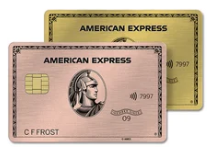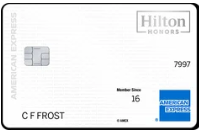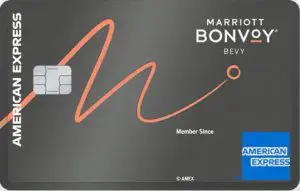Table of Content
There are many times that you find yourself in need of quick cash. Who doesn’t?
If you have stuff in your attic or basement that has some value but just gathering dust, you can make some money off them. Consider bringing them to a pawnshop and walk away with money in your pocket. A word of caution: novices should first learn the ins and outs of these transactions before even setting foot in the shops.
Now, let’s be clear about this: we are NOT recommending pawnshops.
However, if you need cash immediately and are out of legitimate options, a pawnshop is better than an auto title or payday loan.
In this chart compiled with LendingTree customer data, you can see that those with a 720+ credit score pay an average of 7.63%. At the other end of the scale, for those with a poor credit rating of less than 560, the rate shoots up to an eye-watering 113%.
What Are Pawnshop Loans?
A pawnshop loan is a quick and easy way to borrow money without the hassle of credit checks and voluminous forms to fill out.
You can get a loan depending on the value of your collateral – not your income or credit scores. Depending on which state you live in, a typical pawn loan may have a term of 30 days or one month plus a 30-day/one month grace period. If you are not able to pay your loan on time (including the grace period), there is an option for an extension or renewal. Of course, this is subject to the state laws and conditions of the lender to give you extra time to come up with the money. Or, you may choose to forfeit your collateral in full.
A pawnshop loan is a convenient way to borrow money that doesn’t require too much documentation. The pawnshop won’t do a credit check and they’ll give you cash on the spot. They will just appraise the collateral you present and give you a loan depending on their valuation.
Imagine this:
You are in need of money and you have a gold necklace. You take it to the pawnshop; the pawnbroker appraises the item and then offers you a loan according to a percentage of appraisals. If you’re okay with it, he completes simple documentation and gives you the money. The pawnshop will accept items ranging from gold and diamond jewelry to electronics, musical instruments, tools, bicycles and more.
How It Works
If everything turns out well with you, you go back within 30 days (or a few months, depending), pay off the loan plus interest and fees. The pawnbroker then, returns your item. The limits on fees, interests and loan amounts vary from state to state and sometimes by a municipality. Some fees that pawnshops charge are application and appraisal fees, insurance and storage charges.
If you're unable to repay the loan, you can ask for an extension or renewal, but this will depend on the laws in your area. If you still don’t repay, the pawnshop may sell your item to recover the money. The timing of when they can sell the collateral varies depending on local regulations.
According to the National Pawnbroker Association, the average amount of pawn loans is $150. However, technology has invaded pawn broking and even upscale customers can now pawn online. Pawngo usually lends up to $1 million while Borro releases up to $2million to customers who can offer the right assets as collateral.
To evidence the loan, the pawnbroker will give you a ticket that stipulates all the conditions and fees related to your loan. You must keep this ticket because you will need it to retrieve your item. If you lose your ticket, you will end up paying more fees.
Pawnshop Loans Interest Rates
Interest rates on pawnshop loans differ from shop to shop which presents them as fees. It is more useful to compare loans in terms of annual percentage rates. Pawnshops do charge to more than 200% APR for their loans.
Interest rates and other fees by pawnshops vary by state. For example, in South Carolina, the APR can range from 65.40% on a $15,000 loan to 300.00% on a $50 loan. That’s on top to the financing charge, which normally ranges from $817.50 to $12.50 for those amounts, respectively.
The State of Indiana capped the ‘interest rate’ at 35% PR or 3% per month. However, pawnshops can charge an additional 20%-monthly service charge. Effectively, the allowable finance charge can reach 23% per month.
That’s far higher than what traditional lenders charge but it’s still better than payday loans and car title loans. They normally top 400% APR or more. Also, there’s no risk of affecting your credit score or experiencing harassment from debt collectors or lawsuits.
Extensions & Renewals
If you are not able to pay back your pawn loan in full on its due date, you may request for an extension, if allowed by law. In an extension, you can just pay a portion of the interest then extend the length of your loan for as long as allowed by state law.
You may also try to apply for a renewal as long as the state laws permit you to do so. In renewal, you pay the accrued interest in full and the pawnbroker writes a new pawn letter. They will retain the principal loan amount as well as the interest rate – but they reset the due date for the full loan term.
Collateral Value
One thing is still missing here: How do lenders determine the condition and worth of an item?
Lenders will determine the loan amounts based on the value of the item you are presenting. They will check its current market and appraised values, its present condition and its marketability in case they would have to sell it. The lenders will use the research tools at their disposal to determine the value of the item to give you the highest valuation possible.
The appraisal process will vary depending on the item you're offering. For example, they’ll use a different method to appraise jewelry than they would for an old iPod. They research and evaluate items to ensure that pawn loan values align with the market value of pre-owned goods. This includes checking multiple sources to determine both the retail value of the item (whether new or pre-owned) and its overall condition.
Collateral Condition Matters
They always consider the condition of an item during the appraisal process for a pawn loan. For example, if you have two 32-inc television of the same brand but different conditions, they might have different loan values. If one is in perfect condition and the other has a cracked case, the former will probably get a higher value.
For general merchandise, the lenders test each item to ensure that it is in good condition. This would include (but not limited to), a visual inspection to note cracks, scratches, etc., turning it on, and noting if necessary accessories (ex. Remote control) and manuals are included.
Pawnshop Loans – Pros & Cons
Here are the most important pros and cons of pawnshop loans:
- Bad Credit
Pawnshop loans are popular with consumers who cannot get a conventional loan. They are convenient and cheaper remedies for sudden financial needs. They may be less expensive than the penalties for late credit card payment or the reconnection fee for utilities.
- Doesn't Affect Credit Score
There is no legal burden to repay, so your credit scores won’t suffer if you do not pay off the loan. You spare yourself from harassment of debt collectors or lawsuits in case you aren’t able to repay the loan.
- Fast Money
Although they effectively cost more than a traditional loan, you can get your money faster without going through a credit check.
- Very High Interest Rates
You’ll pay exorbitant interest and fees. Although you are borrowing money only for a few months, paying an average interest of 10% a month is steep. Effectively, you’ll be paying an annual interest rate of 120%.
Interest rates run from 12% to 240% or more, depending on the restrictions set by state laws. You might also end up paying for storage costs and insurance fees.
- Lose Your Item
You can actually lose your property. If you don’t repay your pawnshop loan, the item you used as collateral becomes the property of the pawnbroker. Normally, he will give you time to redeem it (usually 30-60 days) by paying the loan plus interest and fees. However, if you don’t pay, the pawnbroker will sell your item away.
Top Offers
Top Offers From Our Partners
What is the Easiest Personal Loan to Get?
Poor credit makes it difficult to get personal loans. Subprime borrowers may be eligible for alternative sources of financing that can make it easier to borrow money with minimal requirements.
Lenders will offer loans quickly to borrowers with low credit scores (629 FICO and lower). If you have bad credit and steady income, you may be eligible. Your credit score will not impact the amount of time it takes for a lender to approve you for a loan. However, your loan rate will likely be high. Also, you may be denied for large amounts.
Compare these quick cash personal loans from online lenders. Consider rates and terms, as well as how long it takes for a lender fund a loan. You should consider whether you can delay borrowing, particularly if your rate has been high. When you pre-qualify with multiple lenders, you can compare rates, terms and loan features. Pre-qualifying through The Smart Investor or other lenders that partner with us won't affect your credit score.
What is the Average Time it Takes to Build Credit?
If you are building credit from scratch, it takes at least 6 months of on-time payments for your file to become thick enough to calculate your credit score. FICO assigns credit scores based on credit history.
New users can have a credit score that is between poor and fair. It will take 6-12 months to build enough credit history to be eligible for the next credit score category.
However, getting a good to excellent credit score takes years of good credit habits such as on-time bill payments, keeping a low credit utilization ratio, and only taking new credit cards when need arises.
You can reach the good credit range in three to six months if your fair credit score is above the upper limits. Good credit habits and correcting errors in your credit report will help you to accumulate more points that will push you towards the good credit score category.
If your credit report includes old debts that have not been paid or active debts you may be able to dispute the entries and have them removed.
What is the Maximum Loan I Can Get with a 550 Credit Score?
Although you're less likely to be approved for a large loan than you might be for a personal one, it is possible to obtain one. This type of credit score is considered to be very poor, meaning you will not get a good interest rate. Before applying for anything, it might be worthwhile to improve your credit rating.
You shouldn't expect to get a lot when it comes to money. You will usually only be eligible for $2,500 and less. Although you may be eligible for credit cards, most lenders will not consider your score too low.
Online lenders may have lower FICO scores, so you might be prequalified. Ask about the applications that won't harm your credit score. It may not be worthwhile to have them only do hard credit checks until your credit score improves.
With a score of 550 or lower, you may not be able to apply alone. To get a loan, you might need to have a cosigner.
Local credit unions are your best choice. They are more likely than not to approve you for a loan amount if you have previously done banking with them.



